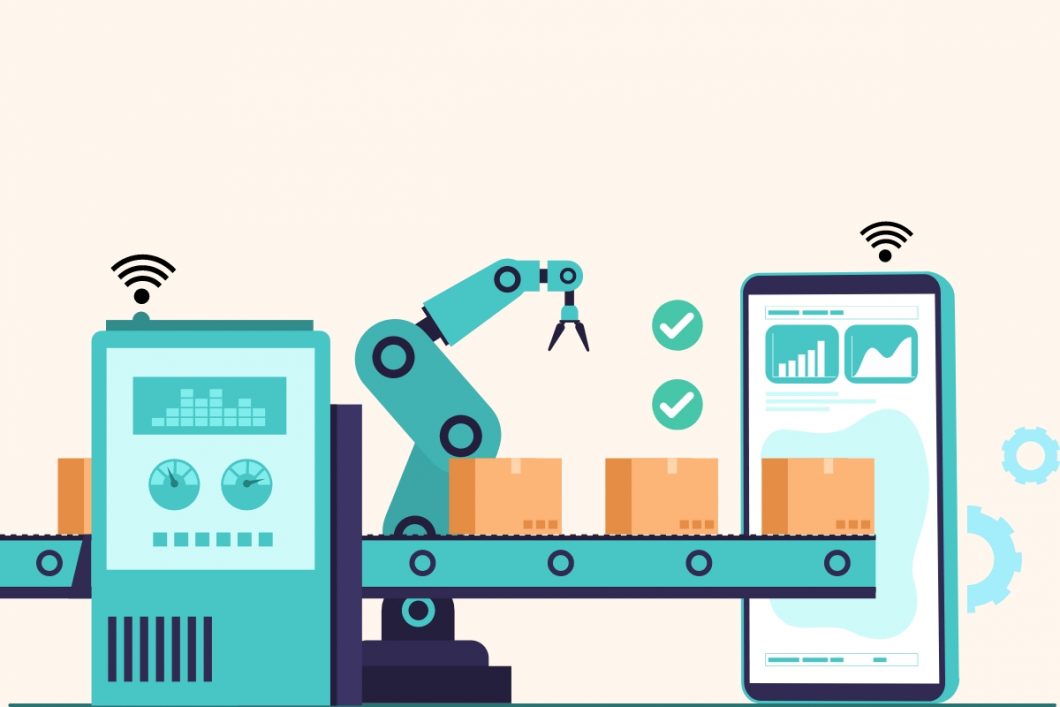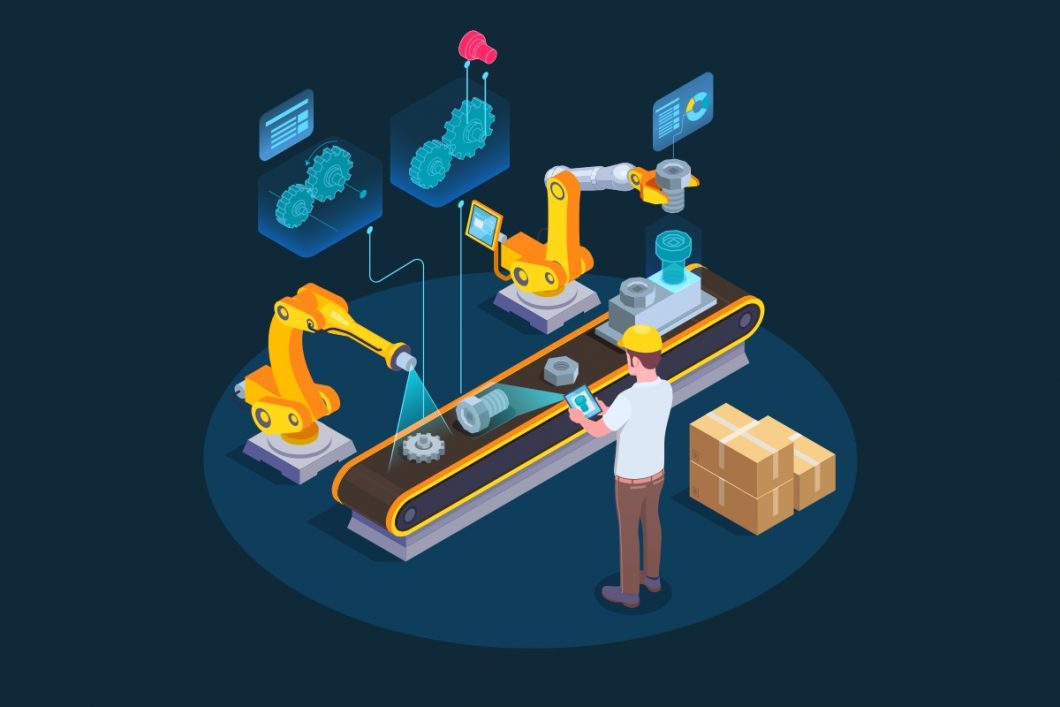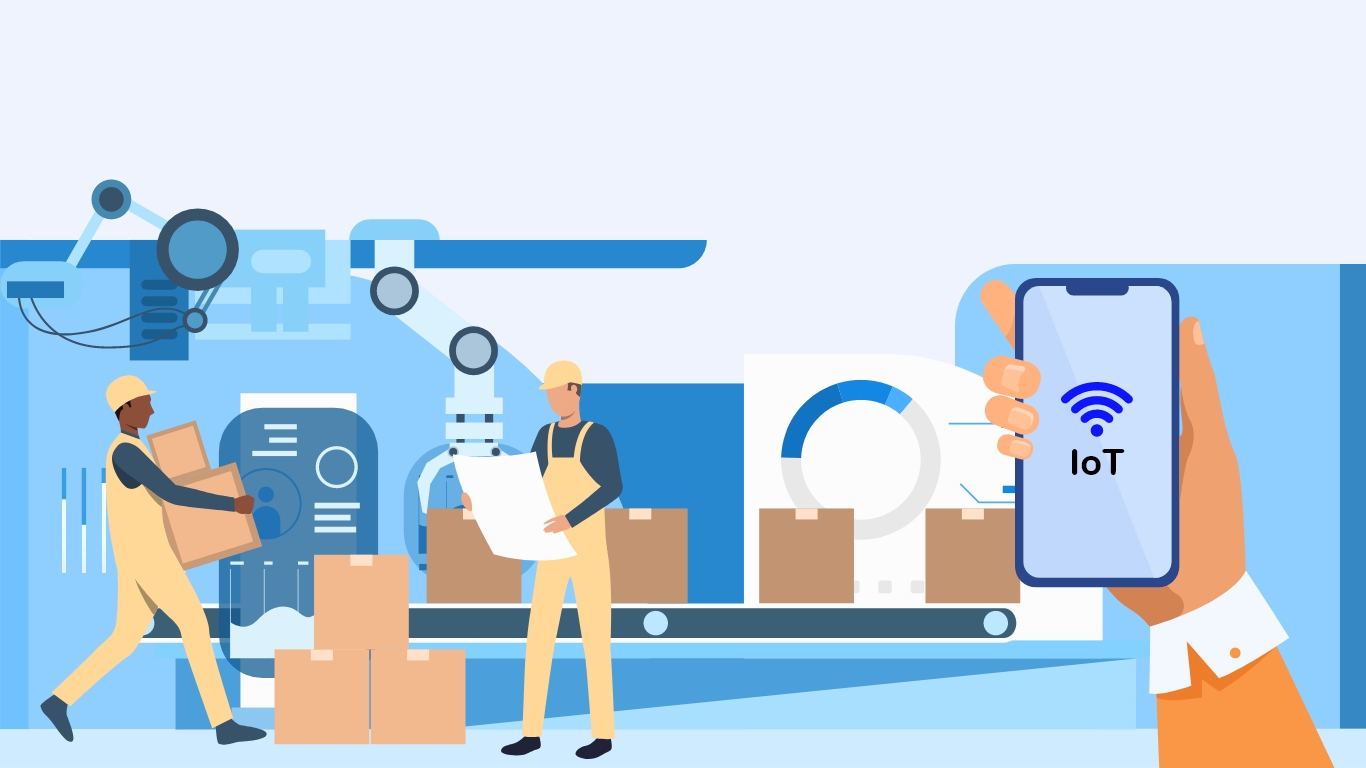The Internet of Things has allowed companies to create innovative and integrated technologies. That enables the development of cutting-edge solutions based on IoT-enabled solutions.
It is beneficial to the manufacturing industry. The Internet of Things is paving the way for advanced technological technologies and forming Industry 4.0 solutions. This enables technology to create solutions and cover the manufacturing sector.
As business 4.0 progresses, it can attain traction by incorporating IoT devices, and robotics. And other tools that have already become a feature of the IoT architecture. Let’s look at the definition of the Internet of Things to help you understand it better.
Table of Contents
The Evolution of Manufacturing
Manufacturing has come a long way from its early days of manual labor and rudimentary machines. The Industrial Revolution in the 18th century marked a significant turning point, introducing steam engines and mechanization. Over time, manufacturing processes evolved, becoming more automated and efficient.
The Rise of IoT
In recent years, the manufacturing sector has witnessed another revolution: the Internet of Things (IoT). IoT refers to the interconnection of physical devices, vehicles, appliances, and even buildings, embedded with sensors, software, and network connectivity, enabling them to collect and exchange data. This interconnectedness has opened up new possibilities and opportunities for the manufacturing industry.
Understanding IoT in Manufacturing
What is the Internet of Things?
IoT in manufacturing involves the deployment of sensors and devices throughout the production process to collect and transmit data in real time. This data can include information about machine performance, environmental conditions, and product quality. By harnessing this data, manufacturers gain valuable insights that drive informed decision-making.

IoT Components and Devices
IoT systems consist of various components, including sensors, actuators, connectivity, data processing, and user interfaces. These components work in tandem to enable the seamless flow of information between devices and systems. Sensors, in particular, play a crucial role in gathering data from the physical world.
IoT Applications in the Manufacturing Sector
Simply put, IoT interconnected assets provide manufacturers with real-time data. That helps them to make informed decisions. The sensor devices provide useful knowledge about system states. Which can evaluate and predict better outcomes.
- Anticipating the Market
- Predictive Maintenance
- Asset Monitoring
- Digital Twins
The Impact of IoT in the Manufacturing Sector

IoT has expanded our daily lives as wireless networking has become more widespread. According to some studies, by 2020, each person in the world will have between six and seven connected devices.
According to polls, nine out of ten Americans own a smart gadget. And about 70% of them use a voice-activated system. IoT finds its place in the field of industrial technology.
The Internet of Things has helped the development of processes. In industries like retail, logistics, and manufacturing. In recent years. We have recently passed cost cuts in manufacturing on to us, the consumers.
Back-office systems have been related as IoT engineering grows, accelerating improvements. Across the enterprise and breaking informational storage facilities that stymie development.
Must Read: What Is IoT Remote Monitoring? How Does It Work?
Here are a few examples of how the Internet of Things. is assisting the manufacturing sector in its evolution:
Data collection: For analysis and service, I need to store data collected from sensors and machines. In a secure manner. The cloud allows manufacturing companies more control and competitiveness for profitability. And turning data into actionable information.
Improved visibility: Manufacturing firms must improve their insight into capital requirements. Equipment efficiency, and security risks. They will create dashboards that show information about the plant’s climate, protection, production, and return on investment.
Smart Assembly: Manufacturing firms are deploying intelligent networks to close the distance between their networks and those of their customers. This enables them to minimize downtime by allowing remote access to applications. And stakeholders and provides accuracy, durability, and resilience from the factory to the business.
Some of the IoT operations taking under the manufacturing sector are:

Manufacturing Operations Under IIoT:
Inventory tracking, intelligent production, end-to-end device optimization and control, and other Industry 4.0. We have segmented capabilities for IoT-based inclusions. Industrial IoT focuses on manufacturing-related technologies.
Production asset management and maintenance:
It is known to be one of the most widely used examples of IoT in manufacturing. And with many potential devices and applications working under it. Production asset monitoring and tracking with the manufacturing parameters. Like quality, performance, damage, and breakdowns of the devices. IoT allows us to better monitor, improve performance, and optimize the manufacturing devices’ operational capabilities.
Improved Monitoring Equipment Utilisation:
IIoT has been improving the manufacturing equipment. It keeps track of skills and allows companies to opt for more advancements. As it allows improved productivity by 15- 25%. As a consequence, it has a positive effect on the development of manufacturing.
Using manufacturing machines is influenced by a variety of factors. This has the desired effect, which includes run time and product production. Which has an effect on real-time data monitoring and the use of cloud services to transmit. Data according to organizational needs.
Enterprise Inventory Management:
With the large manufacturing businesses operating under the inventory management and utilizing. The resources offered under IoT to bring in the required inventory management solutions for their enterprise.
Under IoT, inventory management has improved production and efficiency from 30 to 50% for enterprises. The enterprise inventory management solutions work under IoT and RFID technologies.
Predictive Maintenance Solutions:
Predictive maintenance works on the real-time monitoring of the manufacturing equipment. And brings in the parameters with the insights taken up from it. Machine learning algorithms often support predictive maintenance.
Please visit our IoT Development Company page if you have any concerns or would like to more details about it. Feel free to contact us. We are one of the leading IoT app development companies in the industry.
Our expertise in various domains like Android App Development , iOS Application Development, Blockchain App Development will help you build the solution.
FAQs
1. What is IoT in manufacturing?
IoT in manufacturing refers to the integration of interconnected devices and sensors to collect and exchange data, enabling real-time monitoring and optimization of production processes.
2. How can IoT benefit manufacturers?
IoT adoption can enhance efficiency, improve quality control, reduce costs, and enable predictive maintenance in manufacturing.
3. What are the security concerns related to IoT in manufacturing?
Data privacy and security, integration challenges, and the need for a skilled workforce are common security concerns in IoT adoption for manufacturers.
4. Can you provide examples of IoT implementation in manufacturing?
Certainly! Siemens uses digital twin technology, Bosch employs predictive maintenance, and General Electric utilizes IoT for smart manufacturing.
5. What are the future trends in IoT for manufacturing?
Future trends include the growth of edge computing, increased AI and machine learning integration, and a focus on sustainability in manufacturing processes.

